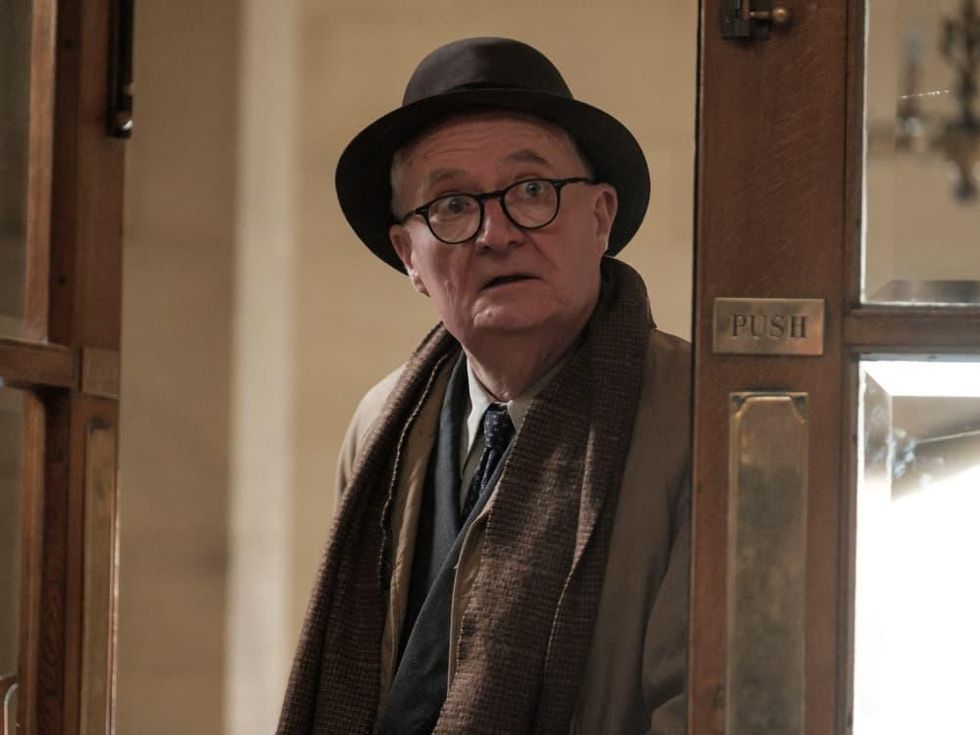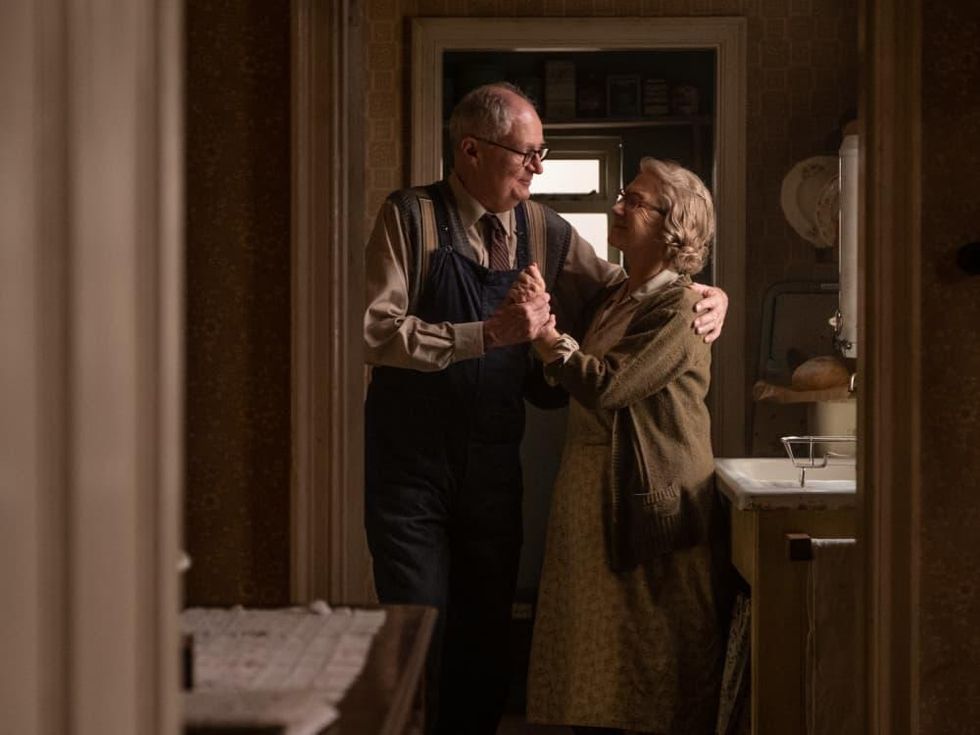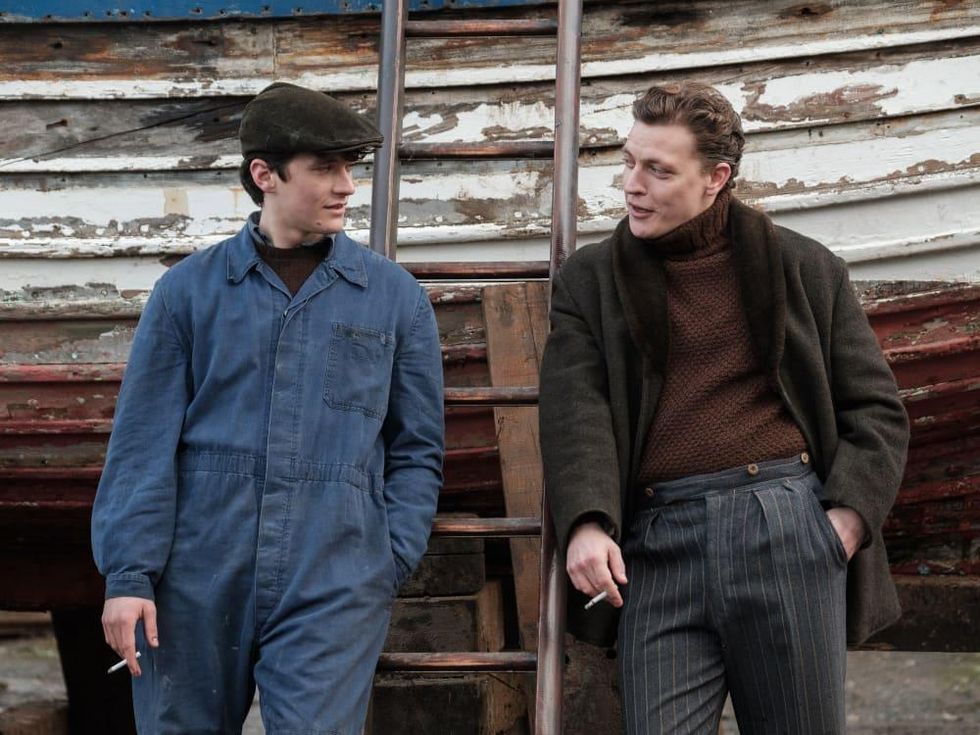Movie Review
Missing painting leads to very British hijinks in The Duke
When a new British film called The Duke comes out, one can usually assume that it’s another in a long line of movies centered on the country’s lineage of royal families. While the title of this film does refer to an actual royal, the Duke of Wellington, the story is about the real-life theft of the Portrait of the Duke of Wellington by Francisco de Goya, a story so farcical that it’s been given a comedic treatment.
Jim Broadbent stars as Kempton Bunton, a man living outside of London in 1961 who’s constantly critical of governmental overreach. His main crusade is protesting the television license tax, which is required of anyone owning a television in the country at that time. The tax is a way to fund the BBC public TV channel, something Bunton tries to get around by simply removing a coil that would allow him to get the channel.
When Goya’s famous painting goes on display at the National Gallery in London, Kempton devises a way to steal it, with plans to use its missing status as a way to draw attention to his other causes. Kempton’s plan doesn’t exactly go swimmingly, especially with the guilty conscience of his son, Jackie (Fionn Whitehead), and the suspicious personality of his wife, Dorothy (Helen Mirren).
Right from the start, the film – directed by Roger Michell and written by Richard Bean and Clive Coleman – has a whimsical feel thanks to a jaunty score by George Fenton. It’s clear that Bunton is no criminal mastermind, and so the longer he gets away with the theft, the more the government and the police looking for the culprit appear foolish. The filmmakers lean into this aspect, keeping the story playful but realistic at all times.
Another element that maintains the light tone is the filmmakers’ use of stock footage of 1960s London onto which they put Broadbent and other actors. Recreating the bygone era was likely not an option for the lower budget film, but the cheesy, obvious greenscreen effects go along with the tone of the movie overall, making it a great choice whether it was purposeful or not.
The film is not as successful in portraying the Bunton family dynamics. A previous death in the family is referenced on multiple occasions, but in such a way that it never has much of an emotional impact. Dorothy appears fed up with Kempton’s constant schemes to get attention for his causes, but the filmmakers fail to adequately show their true bond. Jackie and his brother Kenny (Jack Bandeira) could have stood to have their parts fleshed out a bit more, as well.
Broadbent, who’s played characters with similar personas in Moulin Rouge!, the Harry Potter series, and more, is the ideal actor to play a cheeky role like this. The character is smarter than he appears, and Broadbent knows just how to act clueless when he’s really not. Mirren doesn’t have all that much to do, so it’s curious why an actress of her caliber was cast in such a role. Whitehead is a rising star, and while he has a few good moments, he too is overshadowed by the performance of Broadbent.
The Duke is one of those quintessentially British films where the humor is big despite not being quite as broad as you’d find in an American film. It finds its rhythm thanks to the life-is-stranger-than-fiction story and the reliably interesting acting of film veteran Broadbent.
---
The Duke will screen six times, Friday-Sunday, at The Modern Art Museum of Fort Worth this weekend.










 The Elf Town Depot, with mayor Elfus standing guard.Photo courtesy of David and Melissa Loder
The Elf Town Depot, with mayor Elfus standing guard.Photo courtesy of David and Melissa Loder The Loders have been presenting Elf Town since 2011.Photo courtesy of David and Melissa Loder
The Loders have been presenting Elf Town since 2011.Photo courtesy of David and Melissa Loder